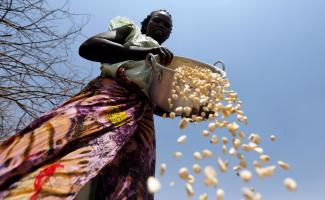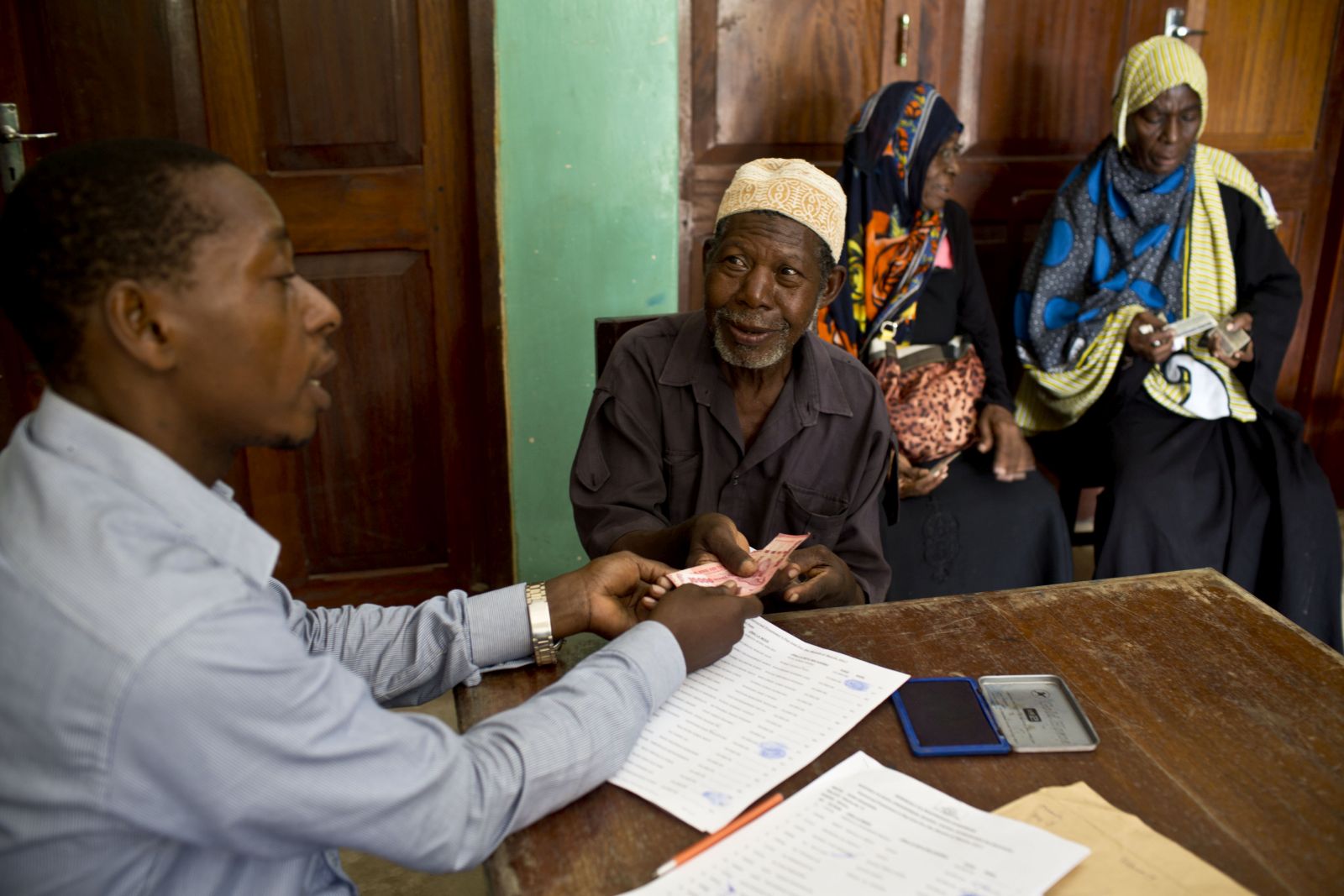Our view
Indispensable transformation

Agriculture is not only a driver of climate change, it is also among the victims. Drought, flooding and extreme weather are becoming ever more common. In developing countries in particular, farmers need to consider modifying their practices. Innovation, including digitalisation, offer new opportunities. Traditional knowledge will often prove a good starting point. Smallholders in developing countries, however, tend to lack access to the competent advice, cutting-edge knowledge and financial services that might allow them to invest in innovation. Infrastructure tends to be inadequate, moreover, and that is equally true of the regulatory environment in many countries.
Apart from the climate crisis, humanity is facing another huge challenge. How will we feed the growing world population? According to the most recent edition of the World Hunger Index, which is compiled every year by Welthungerhilfe and Concern Worldwide, two international non-governmental organisations, the number of those suffering hunger has been growing in the past three years and has now risen to more than 820 million globally.
At the same time, humanity is actually producing enough food to sustain 7.6 billion people. Distribution is not up to task. The situation is particularly bad in places rocked by civil strife. However, many peaceful countries in Africa do not manage to produce enough food for their people either. Harvest losses because of extreme weather compound the problem. Many people cannot afford to buy imported goods. International food aid is not available to all of them, and it is no sustainable solution the first place. It is irritating, moreover, that tons of unused food end in the garbage bins of rich nations. At the same time, there are considerable post-harvest losses in disadvantaged countries, especially regarding rice and wheat. The main reason is poor storage facilities, with pesticides and fungi thriving in moist and hot settings.
Industrialised nations have the funds, the knowhow and everything else they need to transform their agriculture and make it climate friendly. What they lack, is the political will. Powerful interest groups oppose change. The challenges are even greater in many developing countries because they lack the wherewithal – from money for investments to relevant knowledge, from basic infrastructure to sophisticated logistics for marketing farm produce.
To improve rural standards of living, it is not only necessary to make farming as environment-friendly and productive as possible. Small-scale urbanisation in remote areas will help. Small and mid-sized towns can specialise in processing agricultural goods as well as in providing services to farmers. Jobs can be generated that way. If more people find livelihoods in their home regions, migration to megacities will slow down.
These are complex challenges. We are facing global problems that require global solutions. The rich nations must not let developing countries down. Otherwise, neither climate protection nor food security will be feasible.
Sabine Balk is member of the editorial team of D+C Development and Cooperation / E+Z Entwicklung und Zusammenarbeit.
euz.editor@dandc.eu














